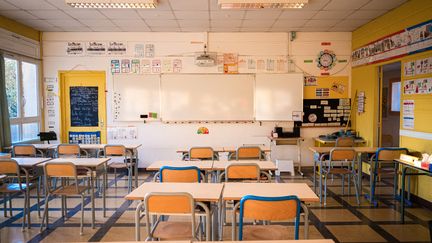In primary, the rate of positions filled is 84% this year, compared to 78.2% in 2022. For secondary, this figure rises to 86.3%, compared to 83.3% last year.
Published
Update
Reading time : 1 min.

Recruitment difficulties persist, but to a lesser degree than in 2022. More than 3,100 positions have not been filled this year in public teacher competitions, according to figures published Thursday, July 6 by the Ministry of Education. nationally, compared to 3,733 last year. In detail, the number of unfilled positions amounts to 1,315 in kindergarten and elementary and 1,848 in colleges and high schools, i.e. a total of 3,163 unfilled positions out of more than 23,800 open positions. However, the ministry notes a “overall improvement in competition performance”which, according to him, allows “to approach the start of the new school year in a more serene way than last year”.
In the first degree, the rate of positions filled at the national level is 84% this year, against 78.2% in 2022. The results of the primary teacher competitions reveal serious recruitment deficits in the Ile-de-France academies (51.9% of positions filled for the Créteil academy, 55% for that of Versailles) and in Guyana (30.2%). But 26 out of 30 academies fill all the positions offered, the ministry points out.
A necessary recourse to contractors
For secondary education, the rate of positions filled is 86.3%, against 83.3% last year. The situation is “contrasted according to the disciplines” : some fill all their positions (history-geography, philosophy, visual arts, life and Earth sciences), others are in deficit (mathematics, German, Spanish and classics). Finally, others are “in progress” such as English, Physics-Chemistry or Modern Literature, depending on the department.
This recruitment crisis requires the use of contract workers, who may be people who have not passed the competition or who have not taken it. The ministry assures to propose this year a “reinforced support” of these people, with anticipated recruitment from June and July, eight days of training on average in the first degree before the start of the school year and seven days in the second degree.

